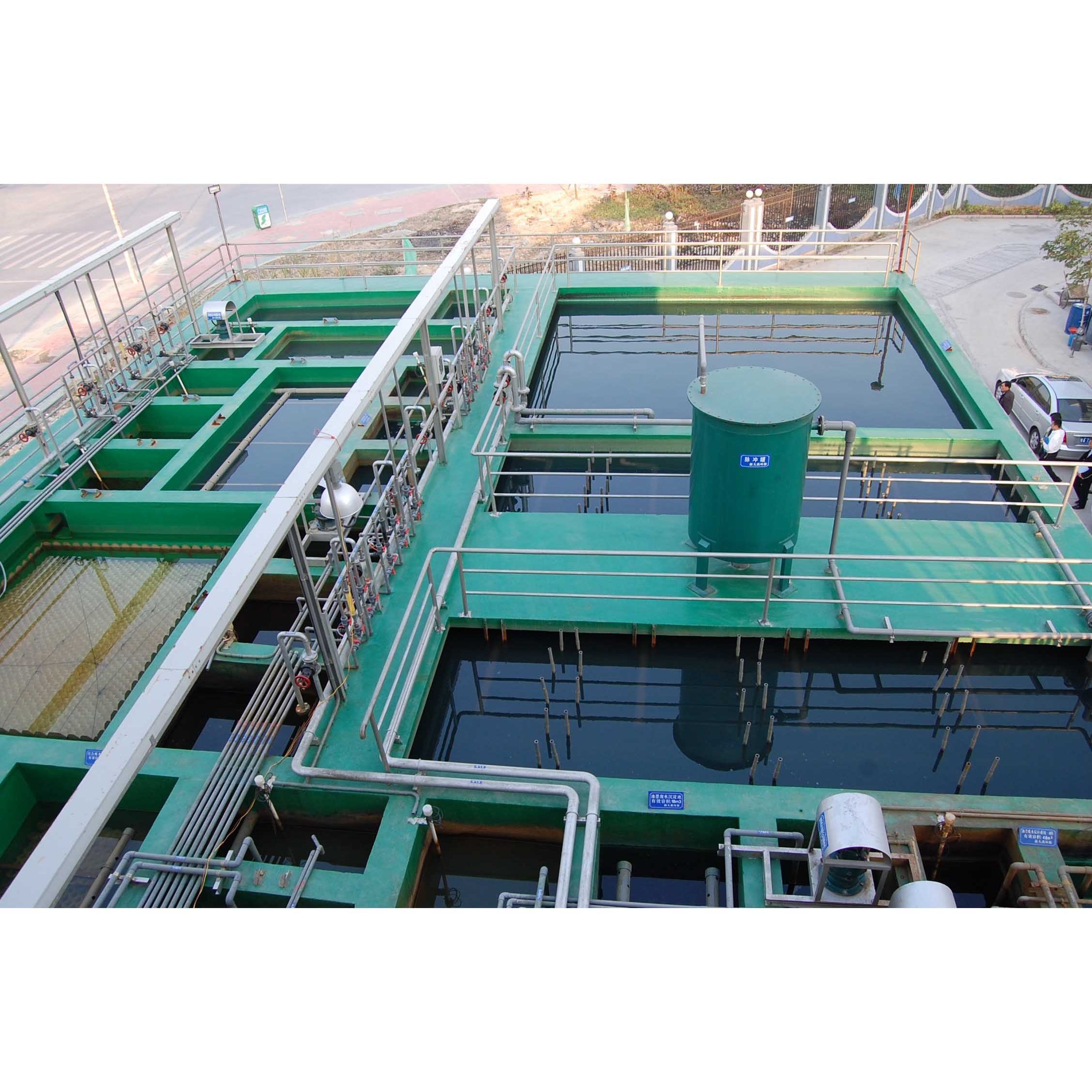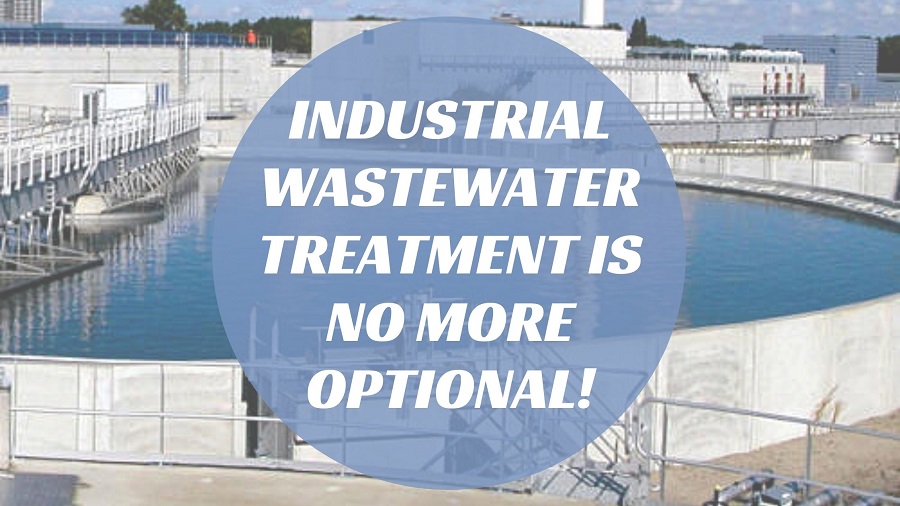Industrial Waste Water Treatment-- Enhance Efficiency with Customized Water Treatment Equipments
Industrial Waste Water Treatment-- Enhance Efficiency with Customized Water Treatment Equipments
Blog Article
Advancements and Breakthroughs in Hazardous Waste Water Treatment Technologies
The landscape of commercial wastewater therapy is undertaking a transformative change, driven by innovations that enhance both effectiveness and sustainability. Emerging innovations, such as membrane bioreactors and microbial gas cells, are redefining contaminant elimination procedures while adding to energy generation. Moreover, source recovery approaches are obtaining grip, straightening with circular economic situation principles. As regulative requirements progress, the combination of AI and artificial intelligence right into wastewater monitoring systems guarantees to simplify procedures and ensure conformity. The full ramifications of these improvements elevate important concerns regarding their scalability and long-term influence on sector practices.
Summary of Waste Water Treatment Technologies
Wastewater treatment innovations include a variety of techniques designed to eliminate pollutants from commercial effluents before their release into the setting. These technologies are essential for preserving environmental balance and making sure conformity with environmental guidelines. The main groups of wastewater therapy include physical, chemical, and biological methods, each offering unique purposes based on the nature of the impurities existing.

Organic treatment methods employ bacteria to break down raw material, making them especially effective for organic-rich effluents. Methods like triggered sludge and biofilm reactors harness the all-natural degradation abilities of bacteria, leading to significant decreases in biochemical oxygen need (BODY)
Advanced Purification Techniques
Advanced filtration strategies stand for a critical development in the realm of commercial wastewater treatment, boosting the efficiency of contaminant elimination processes. Industrial Waste Water Treatment. These methods include a variety of technologies, consisting of microfiltration, ultrafiltration, nanofiltration, and turn around osmosis, which give sequential barriers for numerous bit dimensions and chemical structures
Microfiltration and ultrafiltration use membrane systems to remove suspended solids, bacteria, and bigger organic molecules, improving the top quality of effluent before additional treatment. Nanofiltration connects the space between ultrafiltration and turn around osmosis, properly getting rid of organic substances and divalent ions, hence decreasing the lots on downstream procedures.
Reverse osmosis offers the highest degree of filtration by allowing only water and tiny particles to pass via its semi-permeable membranes, making it suitable for recovering premium water from industrial effluents. Current improvements in membrane layer modern technology, consisting of the advancement of even more fouling-resistant and resilient materials, have actually considerably improved operational performance and lowered costs.
Including these advanced filtering methods not only boosts the total therapy process but additionally adds to sustainability efforts by making it possible for water reuse and resource recovery in industrial setups. (Industrial Waste Water Treatment)
Organic Therapy Advancements

In addition, the advancement of engineered organic systems, such as membrane bioreactors (MBRs), integrates organic therapy with sophisticated membrane layer filtering. This assimilation enables greater effluent top check it out quality and reduced footprint, making it ideal for space-constrained industrial centers. Technologies in genetically engineered bacteria have likewise arised, boosting the biodegradation of particular contaminants, such as drugs and heavy steels, that are commonly testing to remove.
Furthermore, the implementation of bioaugmentation strategies, where helpful microbes are introduced to improve the existing biological treatment procedures, has actually revealed promising cause improving therapy efficiency. These technologies jointly represent a fad in the direction of more efficient and sustainable biological treatment approaches that can adjust to the evolving complexities of industrial wastewater streams. As markets continue to prioritize environmental conformity, these biological advancements will certainly play a vital function in wastewater administration.

Resource Healing Techniques
In industrial setups, the combination of resource recovery methods has actually ended up being increasingly crucial for boosting sustainability and minimizing waste. These methods concentrate on removing beneficial materials and power from wastewater streams, thus transforming prospective toxins into multiple-use resources.
One popular method is nutrition healing, where nitrogen and phosphorus, typically present in excess in wastewater, are recorded and transformed right into plant foods. This not just reduces ecological effects but likewise provides a round economic climate use this link option for farming applications. In addition, technologies such as anaerobic digestion enable the conversion of natural waste right into biogas, a renewable power source that can balance out nonrenewable fuel source use in commercial procedures.
Moreover, progressed purification and membrane technologies assist in the recuperation of commercial by-products such as salts and steels. These recovered products can be reintegrated right into production procedures, lowering the requirement for virgin resources.
Future Trends in Waste Water Administration
As sectors significantly prioritize sustainability, the future of wastewater administration is readied to go through considerable improvements. Technological innovations, such as expert system and artificial intelligence, will certainly enable a lot more efficient surveillance and administration of wastewater systems. These modern technologies can predict upkeep needs, maximize treatment processes, and enhance decision-making, inevitably reducing functional expenses and ecological effect.
Additionally, the assimilation of round economic climate principles will play a vital function in wastewater monitoring. Industries are expected to change towards systems that not only treat wastewater however additionally recover beneficial sources, such as nutrients, water, and energy. This shift will minimize waste and advertise the reuse of materials, aligning with global sustainability objectives.
Emerging therapy techniques, such as membrane bioreactors and advanced oxidation procedures, will additionally boost the performance of wastewater therapy, enabling greater top quality effluents appropriate for reuse. Furthermore, regulative structures are likely to advance, highlighting more stringent standards for wastewater discharge and encouraging markets to take on ingenious therapy services.
Verdict
Finally, the development of commercial wastewater therapy technologies shows a considerable shift towards enhanced performance and sustainability. Developments in innovative filtration strategies, organic therapies, and source healing techniques highlight visit this website the industry's commitment to ecological stewardship. The integration of synthetic intelligence and device discovering better optimizes these processes, making sure regulative conformity and promoting a circular economy. Continued improvements in these locations will play a vital role fit the future of wastewater monitoring and protecting crucial water sources.
The landscape of commercial wastewater treatment is undergoing a transformative shift, driven by innovations that improve both effectiveness and sustainability.Wastewater treatment technologies include a range of approaches designed to remove contaminants from industrial effluents prior to their launch right into the setting.Harnessing the power of organic procedures has led to considerable advancements in the treatment of industrial wastewater.In addition, the application of bioaugmentation techniques, where helpful microbes are presented to boost the existing biological treatment processes, has actually revealed promising outcomes in enhancing treatment efficiency. These developments jointly signify a trend towards more sustainable and efficient biological treatment techniques that can adjust to the evolving intricacies of industrial wastewater streams.
Report this page